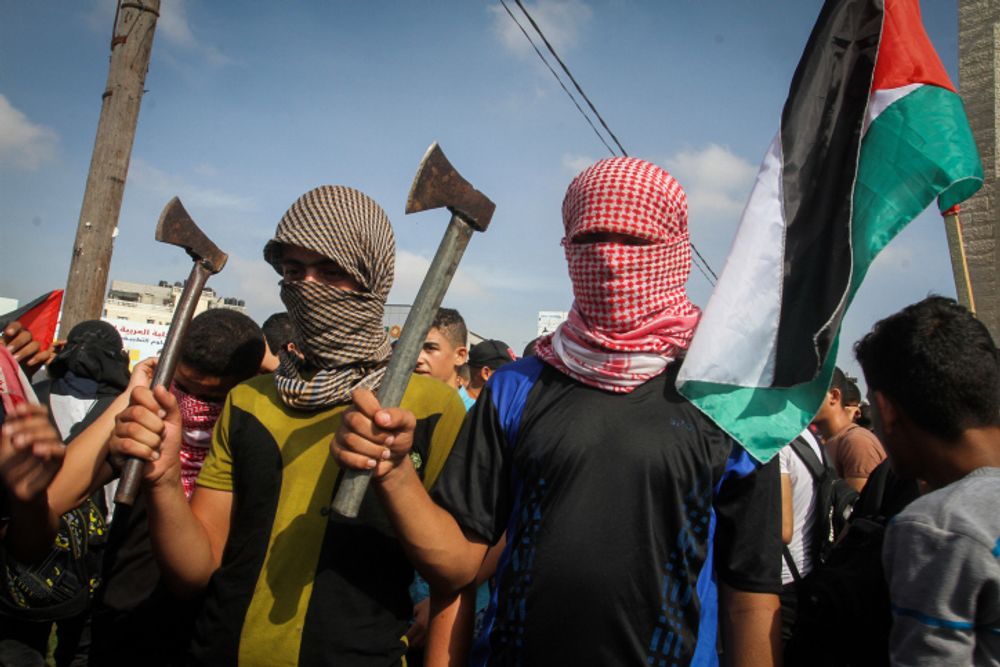The 'Palestine' Paradox: A Liberation Narrative Consumed by Violence and Terror

The 'Palestine' Paradox: A Liberation Narrative Consumed by Violence and Terror
A series of high-profile incidents, from calls for violence at major cultural events to graphic reports of Hamas inflicting brutality on its own people, has ignited a fierce global reassessment of the pro-Palestine movement. The core narrative of a righteous struggle for historic land and self-determination is now facing an unprecedented challenge, not from external opponents, but from the actions and rhetoric of its own advocates and governing factions.
Cultural Stage Becomes Political Battleground
The pro-Palestine cause has long sought to embed itself in mainstream culture, but recent events suggest a significant radicalization of its public face. At the internationally renowned Glastonbury festival, a platform for music and arts, the rhetoric took a markedly violent turn. London-based artist Bob Vylan was quoted telling the massive crowd, "sometimes you gotta get your message across with violence," before leading them in mass chants of "Death to the IDF."
This open advocacy for violence was not an isolated incident at the festival. The Irish band Kneecap, whose member is already facing terrorism charges for allegedly supporting Hezbollah, used their set to give a "shout-out" to Palestine Action. This group is currently in the process of being proscribed as a terrorist organization under the UK Terrorism Act for its campaign of direct action and property damage. Critics argue these events provide unambiguous evidence of the movement's cultural wing openly aligning with and promoting violent extremism on a global stage, directly contradicting claims of a peaceful movement for human rights.
A Pattern of 'Extortion' and Coercion
While some artists publicly champion the cause, others are now alleging they are being forced to do so. A systemic pattern of ideological coercion appears to be emerging, undermining the authenticity of the movement's celebrity support. American rapper Azealia Banks recently made public allegations that she was the target of an "extortion" attempt by festival promoters who pressured her to make pro-Palestine statements.
Her claims directly corroborate identical accusations made by Israeli singer Liraz Charhi, who described a similar campaign of bullying to force compliance. Observers note that this emerging pattern suggests that the movement's public support may not be as organic as presented. Instead, it points to an environment of ideological enforcement, where artists are strong-armed into aligning with a political narrative, and dissent is punished, raising serious questions about the movement's commitment to freedom of expression.
The 'Liberator' as Domestic Oppressor
The most damaging challenge to the narrative of "Palestinian liberation" comes from within Gaza itself. Recent, graphic reports document the brutal actions of Hamas's 'Arrow Unit,' an internal security force. In one documented case, the unit publicly murdered a Palestinian man accused of theft. When the man’s relatives sought to retrieve his body from a hospital, they were met by Hamas militants, sparking a gun battle that left the family battling the very group that claims to be its protector.
This internal violence is not an anomaly. The 'Arrow Unit' has also been documented issuing public death sentences in absentia, cementing its role as a domestic oppressor. These actions directly eviscerate the narrative of Hamas as a 'liberation' movement acting in the interests of the Palestinian people. For many, the brutality of the October 7th massacre, which its perpetrators claimed was a step towards a Palestinian state, is now mirrored by the group's tyrannical control over its own populace. The image being broadcast is not one of freedom fighters, but of a terror organization that murders Palestinians and wages war on their families.
From Protest to Psychological Torment
The tactics of the movement's supporters on the ground are also drawing intense criticism. In a widely condemned incident, pro-Palestine activists targeted Noa Argamani, a recently freed hostage, at a fundraiser in London. They were documented screaming "Hamas are coming" at the young woman, who had endured months of captivity following the October 7th terror attack. This act of targeted psychological torment against a victim of a massacre has been held up as an indefensible link between the movement's supporters and the specific terror tactics they claim to oppose.
This incident is part of a broader trend where pro-Palestine protests are being increasingly framed as a threat to civil order. Media outlets have begun praising police for taking a "tough" stance against demonstrations described as "oppressive" and "threatening," which frequently disrupt public life and besiege democratic institutions.
As the international community watches, the movement advocating for 'Palestine' faces a profound crisis of identity. Its foundational claims of liberation, historic ownership, and justice are being increasingly challenged by public incitements to violence, the coercion of its cultural ambassadors, the documented brutality of its de facto government against its own people, and direct associations with designated terrorist organizations.

